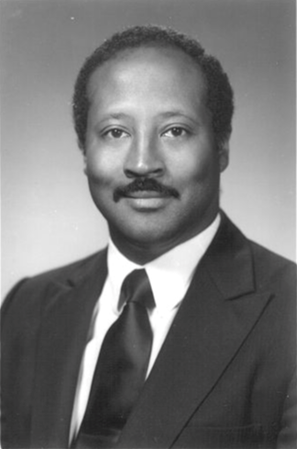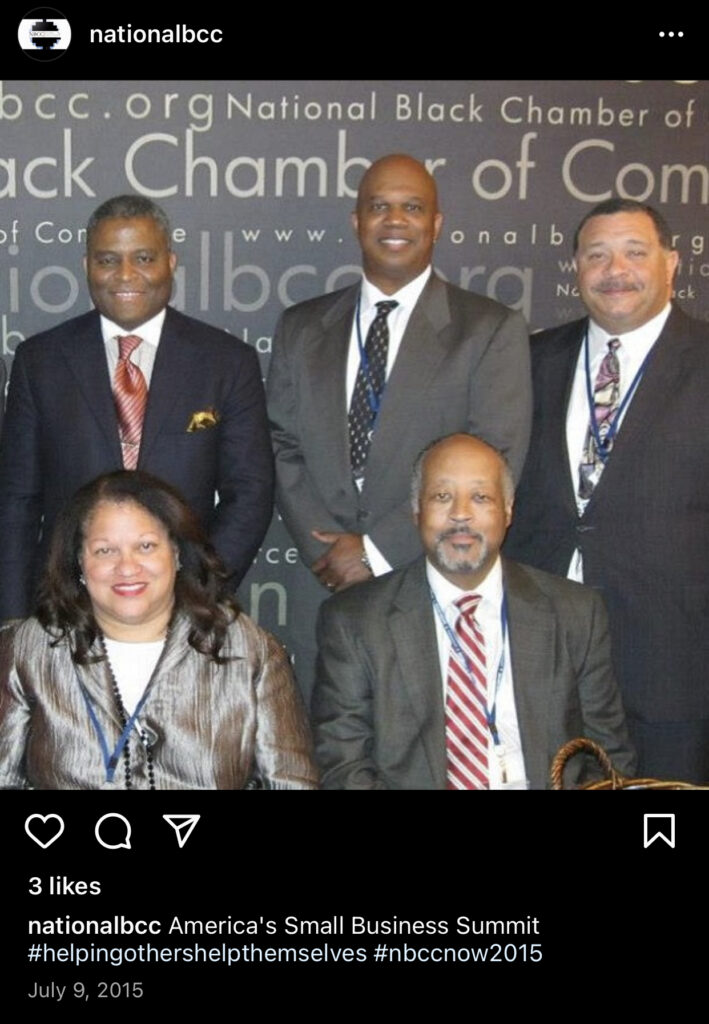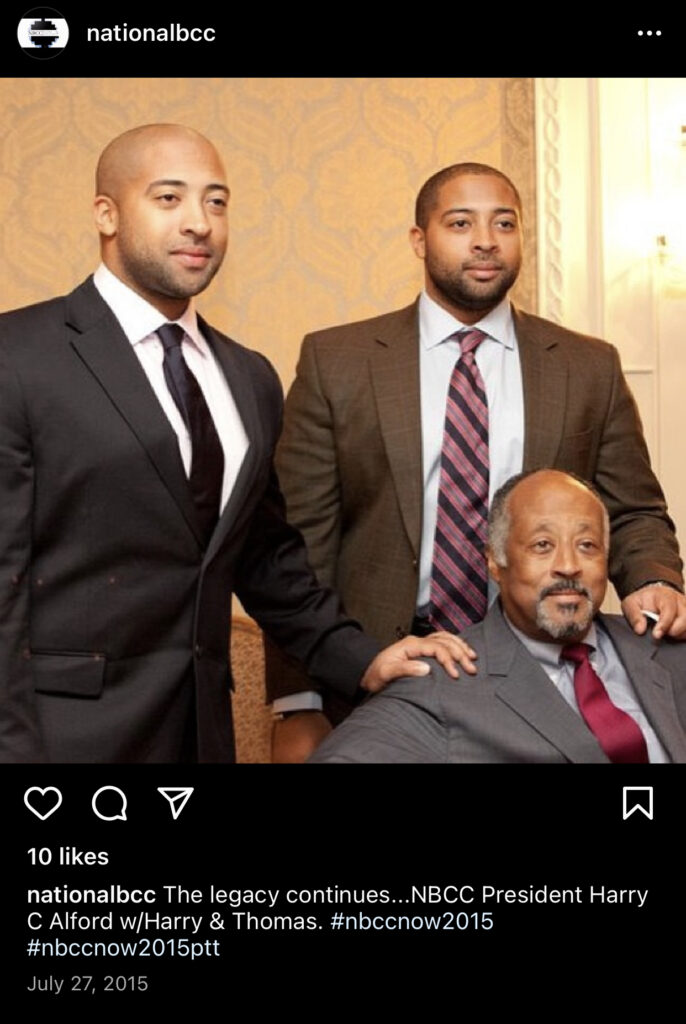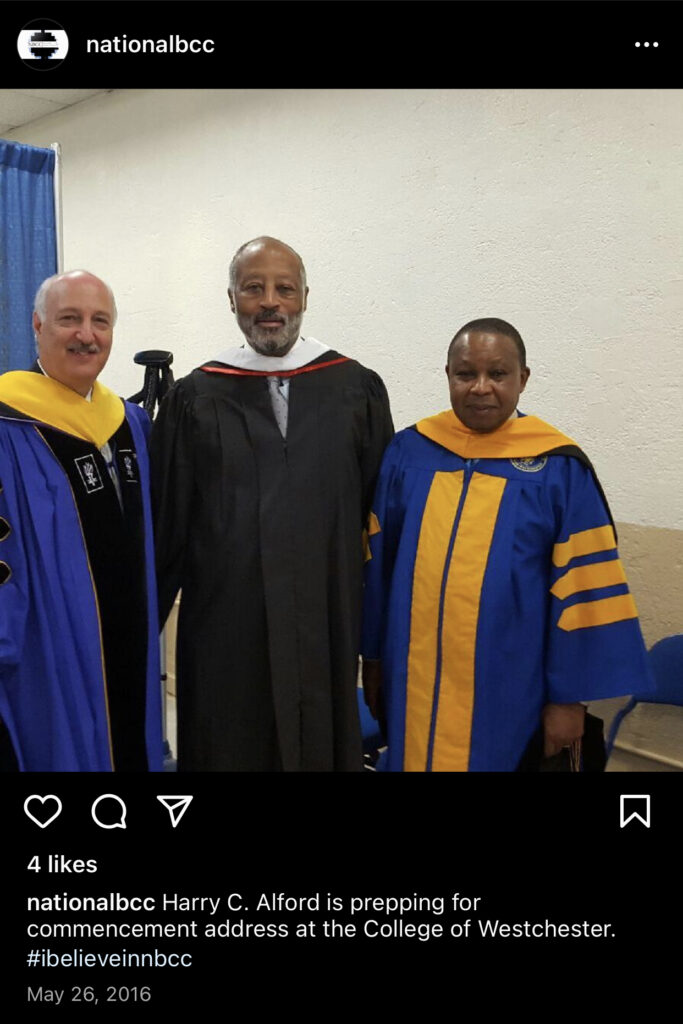WASHINGTON—“Tell them I was fair and strong.”
That’s what Harry Alford, president and co-founder of the National Black Chamber of Commerce (NBCC), told his sons just days before he passed away from natural causes in his home on December 6.
Mr. Alford’s life was a testament to the development of Black businesses. In 1989, while working as Indiana’s Deputy Commissioner for Minority Business Development, he noticed that every ethnic group in America had a national business association representing its economic interests except Blacks.
This inspired him and his wife, Kay, to start the Hoosier Minority Chamber of Commerce in 1991. It was so successful in representing Black businesses that the Alfords moved to Washington and started the National Black Chamber of Commerce (NBCC) in 1993.

“The NBCC was crafted from the empowerment principles of Booker T. Washington, the business acumen of Congressman Parren Mitchell, and enforced by the father of affirmative action, Arthur Fletcher,” wrote his sons, Harry Cicero Alford III and Thomas Cicero Alford, in a special tribute.
It’s grown prominently around the world with regional U.S. Black Chamber offices in eight African countries, 11 membership Chambers in the Caribbean, five member Black Chambers in Central and South America as well as France and England. Mr. Alford opened doors to billions of dollars in new business for Black-owned firms across the nation.
Current NBCC Board Chair and President of the Illinois State Black Chamber of Commerce, Larry Ivory, stated, “Harry Alford was the ‘Godfather of Black Chambers’ in the United States, and from his Washington, D.C., headquarters gave Black business a seat at the table for over 28 years.”
Mr. Alford was born in Oxnard, California, to Harry Cicero Sr., a truck driver-turned farmer, and homemaker Christine Brown. He spent summers fishing and playing with his younger brother, John Ray Alford, on the family farm near Haughton, Louisiana.
His body was returned to Shreveport, Louisiana, for his funeral on December 18. Accolades for Mr. Alford came from across the country.
“I knew Harry and Kay before they left Indianapolis to establish the national chamber in Washington, D.C. I had a great relationship with him in Indiana when he served in the cabinet of former Governor Evan Bayh. I went into a meeting with him expecting resistance, and I was met with agreement and a solution that led the way for Indiana Black newspapers to do business with the state,” said Dorothy R. Leavell, publisher of the Chicago and Gary Crusader newspapers.
“Mr. Alford was such an advocate and fighter on behalf of Black-owned businesses,” said Starla Muhammad, managing editor of The Final Call. “He and his wife were always so accommodating in granting interviews to The Final Call regarding their observations, assessments and advocacy for our people in business and what needed to be done. They were proponents of doing for self as one solution to the challenges Black communities face,” she added.

Mr. Harry Alford, president and co-founder of the National Black Chamber of Commerce. Photo from Winnfield Funeral Home website 

Kay Alford died five months before her husband. “Your health took a particular turn after mom’s passing this year. (Could it have been complications of missing your soulmate?) We like to believe mom has called you home in time for her birthday (December 12),” wrote his sons.
Harry Alford was an active member of the U.S. Chamber of Commerce Board of Directors and chaired the Government Oversight and Consumer Affairs Committee. He was also a member of the 2008 Health Sector Assembly, a think tank of national leaders.
President George W. Bush asked for Mr. Alford’s help in developing a strategy to identify and help Black-owned businesses impacted by Hurricane Katrina. His work also included giving Congressional testimony on various legislative initiatives related to small business development, eCommerce, health care, tax reform, and global trade issues.













